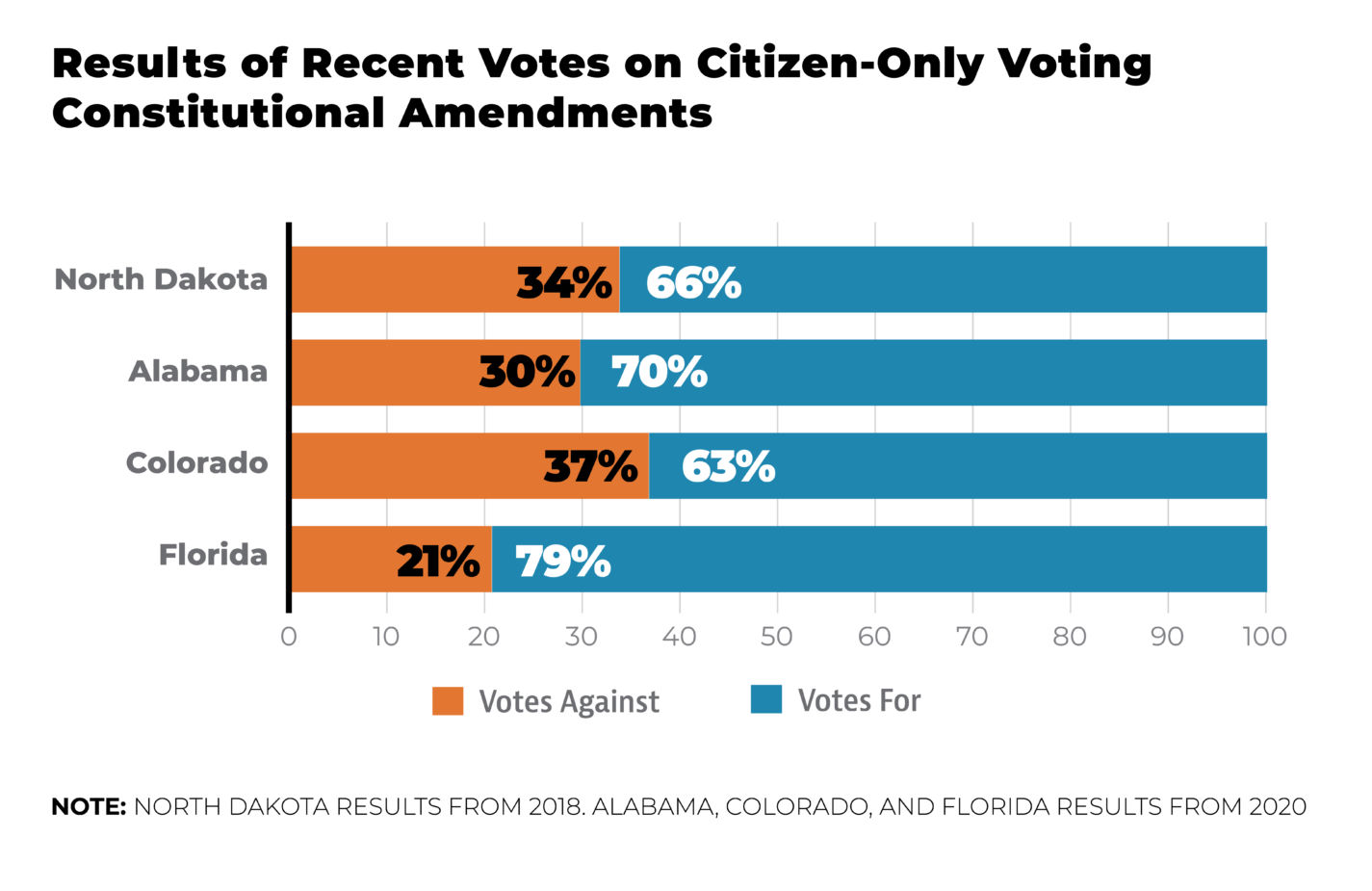- There is a growing movement in the United States to allow noncitizens to vote in American elections
- The North Carolina State Constitution currently allows noncitizens to vote while it fails to include some United States citizens
- North Carolina should join the growing number of states that are passing citizen-only voting amendments to their constitutions
There is a growing movement in the United States to allow noncitizens to vote. Most recently, New York City passed an ordinance that would allow up to 800,000 noncitizen legal residents to vote in city elections. They have been allowed to vote in school board races there since the 1980s.
New York is hardly alone in allowing noncitizens to vote. As part of a currently small but growing movement, the Vermont legislature overrode Gov. Phil Scott’s veto to permit noncitizen voting in local elections last year. Noncitizens are also allowed to vote in some elections in Maryland and California.
Momentum is gaining for a broader push to allow noncitizens to vote. Democratic attorney Marc Elias’ Democracy Docket webpage wrote positively about the New York ordinance for noncitizen voting, calling it a move to “expand voting rights and include more people in the political process.” Their embrace of noncitizen suffrage suggests it could be something Elias and his allies will eventually push nationwide. CNN, the New York Times, and the Boston Globe have all recently argued for granting noncitizens the right to vote.
The fight over noncitizen voting will eventually come to North Carolina one way or another. But there is some good news. While some states and localities are moving towards allowing noncitizens to vote, others are explicitly banning it.
North Dakota citizens approved a citizen-only voting constitutional amendment in 2018. Alabama, Colorado, and Florida voters passed constitutional amendments explicitly banning noncitizen voting in 2020. The votes the average support in those votes has been about 2-to-1 in favor. Before then, only Arizona’s constitution explicitly limited voting rights to United States citizens. See Figure 1 for details.
North Carolina should join them. A citizen-only voting amendment here would also patch a hole in the North Carolina State Constitution: not only does it currently allow noncitizens to vote, but it also excludes some U.S. citizens from being able to vote.
Figure 1: Results of Recent Votes on Citizen-Only Voting Constitutional Amendments

What Would a Citizen-Only Voting Amendment Change?
Article VI, Section 1 of the North Carolina constitution states: “Every person born in the United States and every person who has been naturalized, 18 years of age, and possessing the qualifications set out in this Article, shall be entitled to vote at any election by the people of the State, except as herein otherwise provided.”
The change to Article VI, Section 1 of the North Carolina constitution would remove “Every person born in the United States and every person who has been naturalized” and replace it with “Every citizen of the United States and only a citizen of the United States.”
Figure 2: Proposed Technical Change to Article VI, Section 1 of the North Carolina Constitution
Every citizen of the United States and only a citizen of the United States,Every person born in the United States and every person who has been naturalized,18 years of age, and possessing the qualifications set out in this Article, shall be entitled to vote at any election by the people of the State, except as herein otherwise provided.
The current language says that citizens cannot be denied the right to vote, except as provided elsewhere in that part of the constitution. Still, it does not specify that only citizens may vote in North Carolina. The amendment would correct that. As explained below, this change would also include a group of citizens who are excluded in the current constitutional language: natural-born citizens who were born overseas.
Why Is This Change Necessary?
North Carolina currently limits voting rights to citizens by statute. Federal law similarly prevents noncitizens from voting in federal elections. So why amend the North Carolina constitution?
First, whether noncitizens can vote in our elections is fundamental to how our republic works. Its importance rises to the point where it should be a part of our state government’s foundational document.
Citizenship is not just a piece of paper. It binds us together as national and state communities that collectively rule our republics. As Alabama Secretary of State John Merrill noted, the proper route for immigrants to gain voting rights is through naturalization:
Nationalized citizens must take an oath to the U.S. Constitution, and they have shown they are dedicated to learning about our institutions, laws, and political culture. The naturalization process serves as an essential, shared experience for millions of past and present immigrants to the U.S. In comparison, non-citizens do not have this same shared experience nor have they shown the same verifiable degree of dedication to understanding and joining our national community.
Second, statutory limits are subject to change by temporary majorities in the legislature, whereas constitutional limits are more permanent. Like those in New York City, future politicians in North Carolina could see granting noncitizens the right to vote as a means to “reshape local politics forever,” either by allowing noncitizens to vote statewide or permitting municipalities or counties to allow noncitizens to vote in local elections.
Like North Carolina’s constitution, New York’s constitution affirms that “every citizen shall be entitled to vote.” Also like North Carolina’s constitution, it does not limit that right to citizens only, giving politicians the power to grant voting rights to noncitizens. North Carolina’s voters should be given the opportunity, through a vote on a constitutional amendment, to decide if politicians should have that power or not.
In addition, the current language only recognizes two groups of citizens: those born on United States soil and those who have been naturalized. It excludes natural-born citizens who were born overseas. Some of the more well-known natural-born citizens born overseas include Texas Sen. Ted Cruz (born in Canada), Illinois Sen. Tammy Duckworth (born in Thailand), and North Carolina singer and producer J. Cole (born in Germany). People born to American parents overseas are natural-born citizens, and their exclusion in North Carolina’s constitution should be rectified.
Summary
A citizen-only voting amendment would amount to a technical correction to North Carolina’s constitution. It would clarify that only United States citizens may vote in our elections and include natural-born citizens who were born overseas.
North Carolina should join the growing number of states that are passing citizen-only voting amendments to their constitutions.


